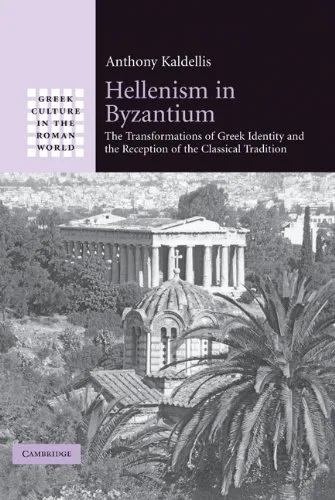Hellenism in Byzantium: The Transformations of Greek Identity and the Reception of the Classical Tradition
5.0
Reviews from our users

You Can Ask your questions from this book's AI after Login
Each download or ask from book AI costs 2 points. To earn more free points, please visit the Points Guide Page and complete some valuable actions.Related Refrences:
This 2008 text was the first systematic study of what it meant to be 'Greek' in late antiquity and Byzantium, an identity that could alternatively become national, religious, philosophical, or cultural. Through close readings of the sources, Professor Kaldellis surveys the space that Hellenism occupied in each period; the broader debates in which it was caught up; and the historical causes of its successive transformations. The first section (100-400) shows how Romanisation and Christianisation led to the abandonment of Hellenism as a national label and its restriction to a negative religious sense and a positive, albeit rarefied, cultural one. The second (1000-1300) shows how Hellenism was revived in Byzantium and contributed to the evolution of its culture. The discussion looks closely at the reception of the classical tradition, which was the reason why Hellenism was always desirable and dangerous in Christian society, and presents a new model for understanding Byzantine civilisation.
Free Direct Download
Get Free Access to Download this and other Thousands of Books (Join Now)
For read this book you need PDF Reader Software like Foxit Reader



